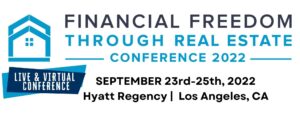
6 Early Budget Considerations That Lead To Financial Freedom
This post may contain links from our sponsors. We provide you with accurate, reliable information. Learn more about how we make money and select our advertising partners.
Graduating from residency is a momentous occasion for every new doctor. You’ve spent over a decade of your life studying, working hard and meeting every challenge you’ve faced to get to this level.
But what most newly minted doctors tend to overlook is budgeting. Although, now is the time to consider your financial freedom that you have worked years for. As you step foot on the road to earning a substantial income, now is the time to develop a plan that works!
Here are your first six steps towards financial freedom.
1. Budgeting Critical for New Doctors?
Whether you’re pursuing a fellowship or you’ve completed your training and have finally become an attending, the salaries you earn will be impressive. But, before you long for a sports car or plan for exotic vacations, look at your current financial situation.
First, there’s going to be debt to deal with. Student loans for medical graduates are simply a fact of life.
The 2022 average is over $241,000. Plus, 20% of medical school graduates have in excess of $300,000 of student loans to pay off. That’s why budgeting is critical for new doctors – because without a solid budget, paying off those loans can eat up most of your income. And instead of rushing to pay off your student loans early, it may be better to refinance your loans to get a better rate.
The earlier you can take control of the money you earn, the sooner you will enjoy all that financial independence offers you.
2. Budgeting 101
So, “budgeting 101” wasn’t included in your medical training. Most medical school graduates have been so immersed in their studies for so long that budgeting never came up. Let’s be clear, however – budgeting isn’t rocket science. It’s basic math that’s based on a simple formula: take your after-tax income and split it up based on what we know as the “50-30-20 rule.”
Those numbers represent percentages. “50” is 50% of your after-tax income that goes to “must haves” or needs – like food, shelter, clothing, transportation, etc.
The “30” is a percentage of your after-tax income for things you “want.” You “want” a new car or a new designer handbag. Sure, you can do without those things, but you’re working hard, so you should indulge in some of your “wants” now and then.
The “20” in the “50-30-20 rule” represents savings. 20% of your after-tax money should go into savings, investments, and retirement funds. And if you’re just out of medical school, consider putting this amount into your “emergency fund” in case any unforeseen financial issues arise.
The key is to put away that money early. Here’s why: If you save 20% of your income at an early age, you’ll reap the benefit of compounding – earning interest on your money and on the interest you earn over the years.
3. Don’t Forgo the 1% Rule
Ok, we’ve discussed the 50-30-20 rule. But there’s one more percentage rule to consider: the 1% rule. The 1% rule means you can still enjoy some of life’s luxuries while striving for financial independence.
The 1% rule requires two separate budgets or sets of books. One covers all of life’s needs, and there’s no upper limit. The other covers life’s wants, and you’re limited to a max spend of 1% of your net worth.Here’s an example: If your net worth is $500k, you can spend $5,000. That’s 1% of your net worth. Having these funds available provides you with a nice balance of enjoying some luxurious living while building your financial independence on your way to retirement.
4. Set Your Financial Goals Early
Budgeting is important as discussed. But so is setting your financial goals for your future. As with budgeting, the earlier you set goals, the better. One of my early goals was to gain financial freedom by age 50, using the income from my practice and passive income from my investments. Fortunately through early smart financial & investment choices I was able to reach that point much earlier than I had hoped for.
You’ll have your own goals, and you can adjust your savings and budgeting to meet them. Your personal goal may be to explore alternative investments or purchase a home in the next 3 years. Setting your financial goals will help you attain whatever you want.
Many doctors and others are choosing FIRE – which is an acronym for “Financial Independence, Retire Early.” It’s a movement that includes lots of hard work, and living below your means. That puts more money into your savings and investments, helping you achieve financial independence.
“Living below your means” doesn’t mean living in poverty. It’s about making choices that can free up money you would otherwise spend. One approach is based on advice from a physician who had completed his 5-year residency in radiology. His advice: continue living on your resident’s salary for several years after you complete your training, and put the money you would have spent into savings and investments. Just imagine how quickly your money will grow.
5. Build the Team
As you transition from a recent resident to attending, you’re going to want to have access to professional help. You simply can’t have the depth of knowledge needed on the various financial and technical topics that go into a successful investment and savings plan.
You're going to want to build an all-star team of financial experts. These might include a financial advisor, account, insurance agent, estate lawyer, real estate brokers & sponsors, etc.
ONE word of caution: make sure your financial advisor is a fiduciary. You’ll have the peace of mind knowing someone is truly looking out for your financial interests.
6. Stay Informed
Budgeting is one of the many topics we cover to help physicians on a professional level. You’ll find many additional posts, courses and conferences that are designed to help you succeed as a doctor and as a professional.
Learn more about how we can help you start, scale, and grow a thriving business. Join our Passive Income Docs Facebook Group and start receiving priority access to new opportunities and shared resources.

The Financial Freedom Through Real Estate Conference (PIMDCON 2022) is a curated, high-yield event designed specifically for physicians and high-income professionals.
PIMDCON 2022 will give you the strategies you need to invest with confidence from people who have already done it themselves! You will have access to Real Estate Strategies By Doctors For Doctors.
The conference will also provide wisdom and insight into navigating real estate investing in today’s volatile environment. Seats are limited!
September 23rd – 25th, 2022 in Los Angeles, CA
>> Secure your seat TODAY! <<Disclaimer: The topic presented in this article is provided as general information and for educational purposes. It is not a substitute for professional advice. Accordingly, before taking action, consult with your team of professionals.

